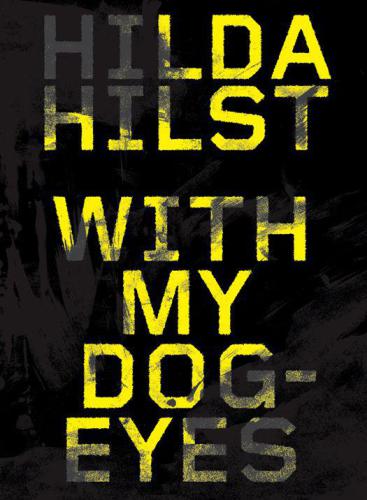
With My Dog Eyes
A Novel
- اطلاعات
- نقد و بررسی
- دیدگاه کاربران
نقد و بررسی

March 31, 2014
This first English-language edition of Hilda Hilst's (The Obscene Madame D) tart 1986 novella aims to introduce the cult Brazilian writer to a wider audience. Translator Adam Morris's fine introduction provides the necessary context to appreciate Hilst, an author, poet, and playwright noted for having her love of dogs. Here she addresses "the nexus she believed existed between genius and madness, poetry and mathematics." The thin narrative concerns Amos Keres, a professor asked to take a leave of absence in part for pausing 15 minutes between sentences in class. Written in a stream of consciousness style where word associations create rhythms and suggest meanings, Hilst's lyrical little book ebbs and flows with vivid imagery, from "a surface of ice anchored to laughter" to a certain smile described by the "little crease on the side of a face." The experimental narrative is interrupted throughout with diverting short stories, haikus, and poetic digressions. A section on polyhedrons is clever, as is a couplet about Keres being a "doctor of numbers but starved of letters." There is even an amusing debate about a man about to be hanged wanting to catch some zzz's. Readers will enjoy this taste of Hilst's talent, but many will find themselves still hungry.

April 15, 2014
A slender, surrealism-tinged tale of fear, loathing and transformation, the third novel to be published in English translation by Brazilian writer's writer Hilst. Born near Sao Paolo in 1930, Hilst, who died in 2004, was an odd character indeed: trained as a lawyer, obsessed with Marlon Brando, a lover of dogs and devourer of libraries, hermit and alcoholic. She also had a sticky memory, and everything she read and observed, it seems, found a way into her writing, though often with absurdist shadings: In Letters From a Seducer, published in English translation by Nightboat Books in March, she speculates that the police hunt down and kill the disappeared "in order not to give them more work later on." (Come to think of it, given Brazil's recent history, that may not be so absurd after all.) The present book scarcely qualifies as a novella, but its pages are densely packed with meaning. "Whorehouse Church Government University. They all looked alike": So grumbles the protagonist, Amos Keres, a professor whose mind rattles with visions, images and loose quotations from Bertrand Russell and Elias Canetti but who wants to be otherwise engaged, it seems: "There are books all over the place," he says, "and I can't interest myself in them any longer." Thus, in appropriately Kafkaesque fashion, does Amos begin a transformation that puts him "[b]eyond the other side of the mirror" and finds him in distinctly different form, though not without a few troubling, adult-rated visits ("Get drunk every night, and vicious, sputtering, shake my dick timetotime for Amanda's friends...") to points of interest in his biography and personal geography. Conceived in the early 1980s, as translator Morris documents in his lucid introduction, this novel speaks to the nexus between genius and madness--and it gets off a few growls at the state of things as they are. Memorable and very strange: Latin American magical realism taken far beyond the bounds of the genre's usual whimsy and pushed into the territory of nightmares.
COPYRIGHT(2014) Kirkus Reviews, ALL RIGHTS RESERVED.

December 1, 2014
Forced to take a leave of absence from teaching because his students "aren't understanding anything anymore," mathematics professor Amos Keres is clearly in the middle of some kind of breakdown. The late Hilst, a leading figure in 20th-century Brazilian literature, shows us a mind unhinging as she lays out Amos's obsessive and increasingly surreal search for meaning beyond the obvious. Coolly delivered, with depth instead of histrionics, so that we understand we'd be right there with him if only we stopped to think.
Copyright 2014 Library Journal, LLC Used with permission.




دیدگاه کاربران